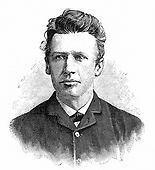
Jacobus Henricus van 't Hoff
Über den Autor
Jacobus Henricus van 't Hoff was a renowned Dutch physical chemist credited with establishing the foundations of chemical kinetics and chemical equilibrium. His groundbreaking work in the late 19th century transformed the field of chemistry, particularly through his development of the laws of chemical dynamics and osmotic pressure. Van 't Hoff’s pioneering contributions included the formulation of the van 't Hoff equation, which relates the change in the equilibrium constant of a reaction to the temperature, providing essential insights into how reactions proceed under varying conditions.
In addition to his theoretical advancements, van 't Hoff was the first recipient of the Nobel Prize in Chemistry in 1901, recognizing his significant impact on the discipline. His legacy continues to influence modern chemistry, as his principles are integral to understanding reaction mechanisms and molecular interactions. Despite his untimely death, van 't Hoff's work remains a cornerstone of physical chemistry, inspiring countless scientists who followed in his footsteps.